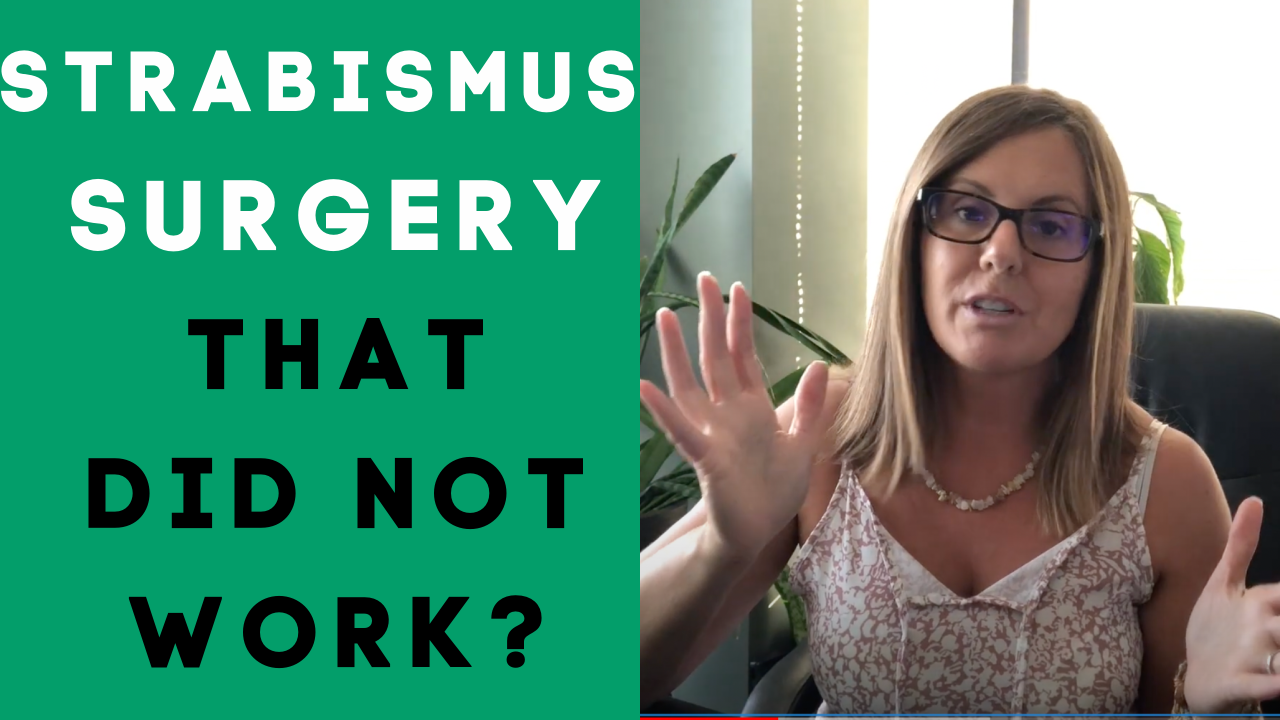At Vision For Life & Success, strabismus is a vision condition that we can treat successfully without the use of surgery. Approximately 80% of our patients come to us because they have strabismus. Often, ophthalmologists recommend surgery as being the best option for treatment. Surgery, however, is merely a cosmetic fix and it will not improve long-term vision like a customized vision therapy program offered at Vision For Life & Success.
When someone has strabismus, his or her eyes can wander or turn inward or outward. This condition can affect an individual’s outward appearance while also affecting vision. Strabismus can also cause poor depth perception and eye strain. Other symptoms of strabismus include:
- Constant headaches, migraines
- Squinting, tilting the head to see better
- Motion sickness
- Double vision
- Poor motor and sports skills
- Trouble focusing (especially when tired)
- Reading difficulty
Strabismus occurs due to a faulty electrical signal from the brain to the extra-ocular muscles of the eyes and may be hereditary in some cases. At Vision For Life & Success, it is our goal to properly align the patient’s eyes and help them to work as a team again.
If you or a loved one has already had surgery for strabismus, vision therapy can be very effective. It does not matter how many surgeries you may have had in the past because at Vision For Life & Success, we are able to train your brain to help you gain control of those eye muscles. In some cases, individuals come to us after having several surgeries to correct their vision. There are small muscles in the eye and after multiple surgeries, there can be scar tissue that forms which may constrict eye movement. However; that doesn’t mean we can’t help. It just means there could be potential challenges associated with previous surgeries.
Scar tissue may connect from muscle to muscle after surgery, ultimately positioning the eye in a certain place. Because the muscles are so small, surgeries can make it a bit more difficult to train the brain to control those muscles using vision therapy, especially if they are connected because of that tissue. Even after surgery, vision therapy can be very effective to retrain your eyes and brain and ensure they are communicating properly, helping the brain and eyes work together as a team. In some cases, excessive surgeries may hamper our chances to correct strabismus due to the scar tissue. The good news? More often, vision therapy offers a lasting solution.
At Vision For Life & Success, we can functionally and developmentally correct the visual problems the brain may be having when signaling the eyes to line up properly due to strabismus. The connection between the eyes and brain is vital, and surgery can sever those neurological pathways. After surgery, the eyes may appear straightened, but this does not mean that the brain and eyes are communicating effectively. You can learn more about Vision For Life & Success by visiting our website at visionforlifeworks.com or by contacting us directly at (618) 288-1489.
